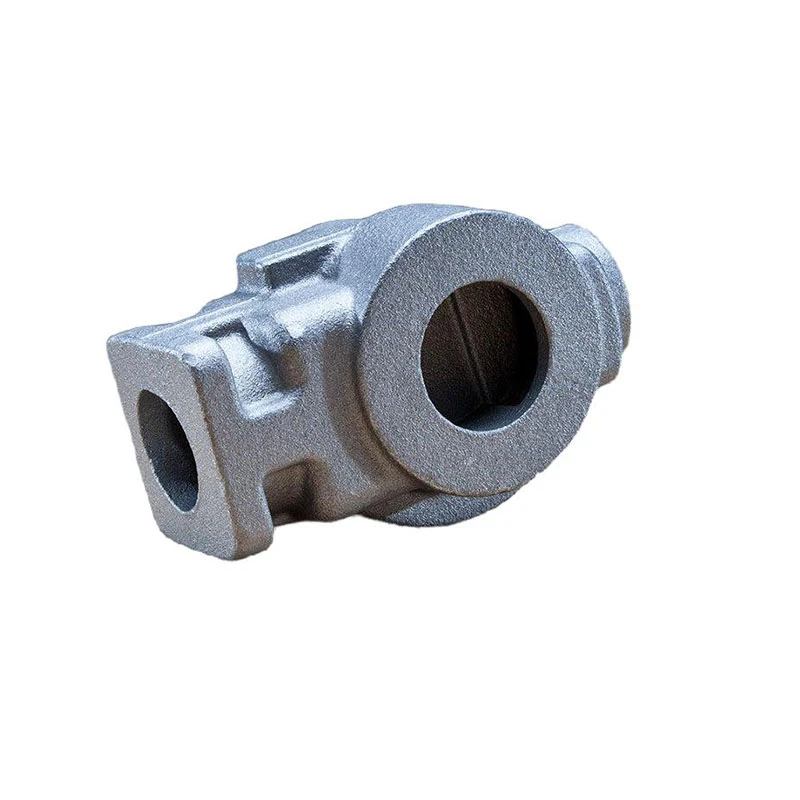Top Manufacturers for Aluminum Casting Solutions in the Industry Today
The Rise of Aluminum Casting Manufacturers Innovation and Quality in a Competitive Landscape
Aluminum casting has become an essential component in various industries due to its lightweight, corrosion-resistant, and durable properties. In recent years, the demand for aluminum castings has increased significantly, driven by the automotive, aerospace, and consumer goods sectors. This surge in demand has led to the emergence of numerous aluminum casting manufacturers, each striving to innovate while maintaining quality in their offerings.
Understanding Aluminum Casting
Aluminum casting is a manufacturing process where molten aluminum is poured into molds to create various shapes and components. There are several methods of aluminum casting, including sand casting, die casting, and investment casting, each with distinct advantages. For instance, sand casting is cost-effective for low-volume production, while die casting is ideal for high-volume production of precision components with excellent surface finish.
The versatility of aluminum allows manufacturers to cater to a wide range of applications. In the automotive industry, aluminum castings are used for engine blocks, transmission housings, and structural components that contribute to weight reduction and improved fuel efficiency. In aerospace, components such as brackets and housings benefit from aluminum's high strength-to-weight ratio. Similarly, consumer electronics and appliances often rely on aluminum castings for their lightweight and aesthetic appeal.
The Role of Manufacturers
As the demand for aluminum casting grows, manufacturers play a crucial role in ensuring that they meet industry standards and customer expectations. The most successful aluminum casting manufacturers invest in state-of-the-art technology and continually adopt advanced manufacturing techniques. This may include automation in the casting process, sophisticated quality control systems, and environmentally friendly practices.
Quality control is particularly important in aluminum casting, as even minor defects can lead to significant failures in end-use applications. Leading manufacturers implement rigorous inspection protocols, including non-destructive testing, to detect any potential issues during production. This dedication to quality ensures that the final products not only meet specifications but also enhance the longevity and performance of the components they are used in.
aluminum casting manufacturers

Moreover, many manufacturers are embracing sustainability practices within their operations. Recycling aluminum scrap and minimizing waste during the casting process are becoming standard practices. This commitment to sustainability not only reduces costs but also appeals to environmentally conscious consumers and businesses. As the global market increasingly prioritizes eco-friendly solutions, manufacturers that adopt sustainable practices are likely to gain a competitive edge.
Challenges in the Industry
While the outlook for aluminum casting manufacturers appears positive, there are challenges they must navigate. The volatility of raw material prices—particularly aluminum—can affect profit margins and production costs. Additionally, the industry faces pressure to continuously innovate and adapt to changing consumer preferences and technological advancements.
Competition among aluminum casting manufacturers continues to intensify, both domestically and globally. Countries with lower labor costs may pose challenges to manufacturers in higher-cost regions, necessitating a focus on quality, service, and innovation to remain competitive. Furthermore, the shift toward electric and hybrid vehicles is prompting manufacturers to reassess their product lines and invest in new technologies to meet evolving market needs.
Future Trends
Looking to the future, several trends are likely to shape the aluminum casting industry. The rise of additive manufacturing, or 3D printing, presents new opportunities for manufacturers to produce complex geometries that traditional methods cannot achieve. This technology allows for rapid prototyping and can lead to cost savings as it reduces the material waste associated with traditional casting processes.
Additionally, advancements in alloy development are enabling manufacturers to create specialized aluminum alloys that offer enhanced performance properties, further broadening the range of applications. The ongoing emphasis on lightweight materials in industries such as automotive and aerospace is expected to sustain the growth of aluminum casting manufacturers.
In conclusion, aluminum casting manufacturers are navigating a dynamic and competitive landscape marked by innovation, quality assurance, and sustainability. As they address the challenges of the industry while capitalizing on emerging opportunities, these manufacturers will continue to be pivotal in shaping the future of various sectors reliant on aluminum castings. The combination of advanced technology, stringent quality controls, and a commitment to sustainable practices positions them for success in the years to come.
-
OEM Sand Cast Pump Valve Fittings - Hairun Sourcing | Precision Engineering, Industrial EfficiencyNewsJul.13,2025
-
EcoGuard 3000 - Sustainable Agriculture Solution&Soil Health ImprovementNewsJul.13,2025
-
SmartAgri Solutions: Smart Farming Tech | AI Analytics & IoT SensorsNewsJul.13,2025
-
[Product Name]-[Company Name]|Business Efficiency&InnovationNewsJul.13,2025
-
Smart Factory Solutions-Industrial Efficiency|Real-Time Analytics&Automated WorkflowNewsJul.12,2025
-
OEM Sand Cast Pump Valve Fittings - Hairun Sourcing | Durable, Reliable, CustomizedNewsJul.12,2025















